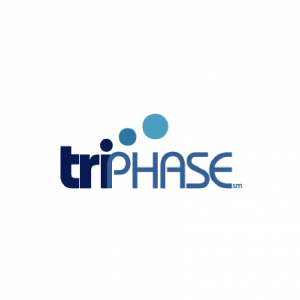 TORONTO and SAN DIEGO (December 8, 2015) — Triphase Accelerator Corporation, a private drug development company dedicated to advancing novel compounds through Phase 2 proof-of-concept, today announced that positive results from its ongoing Phase 1 proof-of-concept study evaluating marizomib in patients with relapsed and refractory multiple myeloma will be presented at the 57th Annual Meeting of the American Society of Hematology (ASH).
TORONTO and SAN DIEGO (December 8, 2015) — Triphase Accelerator Corporation, a private drug development company dedicated to advancing novel compounds through Phase 2 proof-of-concept, today announced that positive results from its ongoing Phase 1 proof-of-concept study evaluating marizomib in patients with relapsed and refractory multiple myeloma will be presented at the 57th Annual Meeting of the American Society of Hematology (ASH).
The company will also present preclinical data on marizomib demonstrating synergistic activity in combination with pomalidomide. Marizomib is a novel and highly potent panproteasome inhibitor.
“The response rate observed with marizomib in this study to date is very encouraging, particularly considering these were all heavily pretreated patients with relapsed and refractory disease,” said Paul Richardson, M.D., clinical program leader and director of Clinical Research, Jerome Lipper Multiple Myeloma Center, Dana-Farber Cancer Institute, and professor of Medicine, Harvard Medical School. “Additionally, marizomib’s unique mechanism of action and synergy with other antimyeloma drugs, and pomalidomide in particular, make it a promising new therapy for patients with resistant disease, and very importantly for those in whom other treatments have failed. The absence of overlapping toxicities, such as peripheral neuropathy, and the manageable side effect profile is also favorable.”
“Our expanding experience with marizomib continues to show promising clinical activity and supports our ongoing efforts to work with Celgene Corporation to accelerate the development of marizomib,” said Mohit Trikha, Ph.D., chief scientific officer and dead of R&D at Triphase Accelerator. “Our experience with marizomib to date also reinforces the potential of the Triphase Accelerator model for more efficiently advancing novel compounds through Phase 2 proof-of-concept in areas of important unmet medical need.”
Marizomib Presentations
Session 1: Myeloma—Therapy, Excluding Transplatation (Poster III)
Phase 1, Multicenter, Open-Label, Combination Study (NPI-0052-107; NCT02103335) of Pomalidomide (POM), Marizomib (MRZ), and Low-Dose Dexamethasone (LD-DEX) in Patients with Relapsed and Refractory Multiple Myeloma (Abstract 4220)
Date: December 7, 2015
Time: 6 PM-8 PM Location: Hall A (Orange County Convention Center)
Key Results
- Thirty-eight heavily pre-treated (median 5 prior lines of antimyeloma therapy) patients with relapsed and refractory multiple myeloma received intravenous marizomib plus oral pomalidomide and low-dose dexamethasone.
- The overall response rate was 59 per cent (partial response or better).
- The overall response rates in patients who were refractory to approved drugs (carfilzomib, bortezomib, and lenalidomide) were very encouraging (80 per cent, 71 per cent, and 52 per cent, respectively). Marizomib was well tolerated and did not appear to adversely affect the safety profile of pomalidomide or low-dose dexamethasone.
Session 2: Myeloma—Pathophysiology and Pre-Clinical Studies, Excluding Therapy (Poster I)
Oral Proteasome Inhibitor Marizomib and IMiD® Imunomodulatory Drug Pomalidomide Trigger Synergistic Antimyeloma Activity and Enhanced Proteasome Inhibition in Vitro and In Vivo (Abstract 1821)
Date: December 5, 2015
Time: 5:30 PM-7:30 PM Location: Hall A (Orange County Convention Center)
Key Results
- The combination of marizomib and pomalidomide reduced cell viability in multiple myeloma cell lines, and in multiple myeloma cells obtained from patients. The reduced viability was a consequence of increased apoptotic cell death induced by the combination drug treatment.
- In vivo studies demonstrated that the combination of oral marizomib and pomalidomide caused greater decreases in tumor volume and improvements in survival in two xenograft animal models of human multiple myeloma in comparison with either drug alone.
- The combination of oral marizomib and pomalidomide also resulted in greater inhibition of proteasome activity across all three proteolytic subunits of the proteasome complex, measured in tumor lysates. These data demonstrate a strong correlation between proteasome inhibition and effects on tumor growth and survival.
These preclinical data strongly support the clinical development of the marizomib, pomalidomide, and low-dose dexamethasone combination for the treatment of patients with relapsed and refractory multiple myeloma.
About Triphase Accelerator
Triphase Accelerator is a private drug development company with a primary focus on oncology and with operations in Toronto and San Diego. Triphase Accelerator is dedicated to advancing novel compounds through Phase 2 proof-of-concept clinical studies using a unique, science-based, high-quality model that is faster and more cost-effective than traditional pharmaceutical and biotech industry drug development approaches. Triphase Accelerator was spun out of the Ontario Institute for Cancer Research (OICR), with support from the Fight Against Cancer Innovation Trust (FACIT), MaRS Innovation and MaRS. It has a strategic relationship with Celgene for marizomib.

